**This post contains spoilers for the first four seasons of Black Mirror and also spoilers for world history if you’re not caught up**
Normally, 18-hour history documentaries aren’t the most enticing sell for spending your spare time. But 2017 was anything but normal, and Ken Burns’ 10-episode deep dive into The Vietnam War was tailor-made for 2017.
Burns’ documentary showcased thorough, balanced storytelling and harrowing stories from people on all sides of the conflict. What made the story so timely, however, were the echoes of history that could be heard loud and clear in a world plagued with similar problems to the times of the Vietnam War.
As the United States’ role in Vietnam became more prominent, America seemed divided beyond repair. The passionate anti-war and civil rights movements forecast a feeling of imminent change. The Cold War ushered fear of nuclear conflict, a Trudeau was prime minister of Canada and a corrupt president led the United States. Sound familiar?
That familiarity with the current global climate can be both comforting and distressing. Comforting because the world made it through those turbulent times, but distressing that little enough has changed that those echoes of history can still be heard today.
“History doesn’t repeat itself,” Ken Burns said leading up to the release of the PBS documentary series. “We’re not condemned to repeat what we don’t remember. It’s that human nature never changes.”
The never-changing human nature that connects The Vietnam War with current audiences is also what makes Netflix’s futuristic anthology series Black Mirror resonate. While technology may seem like the protagonist of Black Mirror, it’s humanity that plays the starring role. The technology doesn’t repeat itself, but human nature never changes.
Black Mirror takes us to a place where technology provides satisfaction for some of humanity’s deepest desires throughout history. Whether it’s the yearning to have someone back in your life, finding purpose beyond death, ensuring the safety of your children, finding a soulmate, or reliving moments of your life with excruciating detail, Black Mirror explores the bliss of each new technology along with the ways humans can inevitably fuck it up.

Maxine Peake in Season 4 of Black Mirror [Netflix]
In “The Entire History of You”, the ability to relive memories in perfect detail is certainly enticing. But the episode shows that as the technology becomes so commonplace, people become trapped in dependence. It’s easy to empathize with Toby Kebbell’s character becoming engrossed in his memories and obsessing over small details until the memories become a hindrance.
While The Vietnam War laid the groundwork for the division of today, Black Mirror questions what we may be laying the groundwork for in the near future. We can see the echoes of today in the technology and characters of Black Mirror—both the good and the bad.
In “USS Callister”, we see where virtual reality gaming could take us and the potential evolution of the Grand Theft Auto school of breaking bad in video games. In Jesse Plemons’ power-abusive Captain Daly, we have an avatar for the white men with inferiority complexes front and centre in the news today.
Meanwhile, the technology in ‘Arkangel’ doesn’t seem too far off. We can see the potential consequences of too much control and supervision of children while understanding the intense concern for safety and well-being that comes with being a parent.
But no matter how far technology advances, Black Mirror shows that humans will still search for something real. In season four’s standout episodes, “Hang the DJ” and “Metalhead”, the importance of tangible human connection in environments peppered with technology and violence is pervasive.
Frank and Amy in “Hang the DJ” rebel against the system and try to build on a real connection despite what the algorithm tells them. In “Metalhead”, each character we meet dies brutally in search of a toy for a (presumably) sick child. The importance of the connection between survivors and the lengths to which they will go to support each other is underlined by the last shot of the visually impressive black-and-white episode.
Finding humanity in dark moments was also an important theme in Burns’ Vietnam documentary. Even amongst the chaos of war in Vietnam, soldiers on both sides found their heroism and developed relationships.
If Black Mirror creator Charlie Brooker travelled back in time to the heat of the Vietnam War, he could provide some great near-future Black Mirror episodes based on these past few years of craziness.
Watching The Vietnam War and Black Mirror so closely together, viewers can take pleasure in watching the thought-provoking nihilism of each series because humanity is able to persevere through the craziness. The scary part of each series, however, is that we may be doomed to return to the craziness no matter what we do.

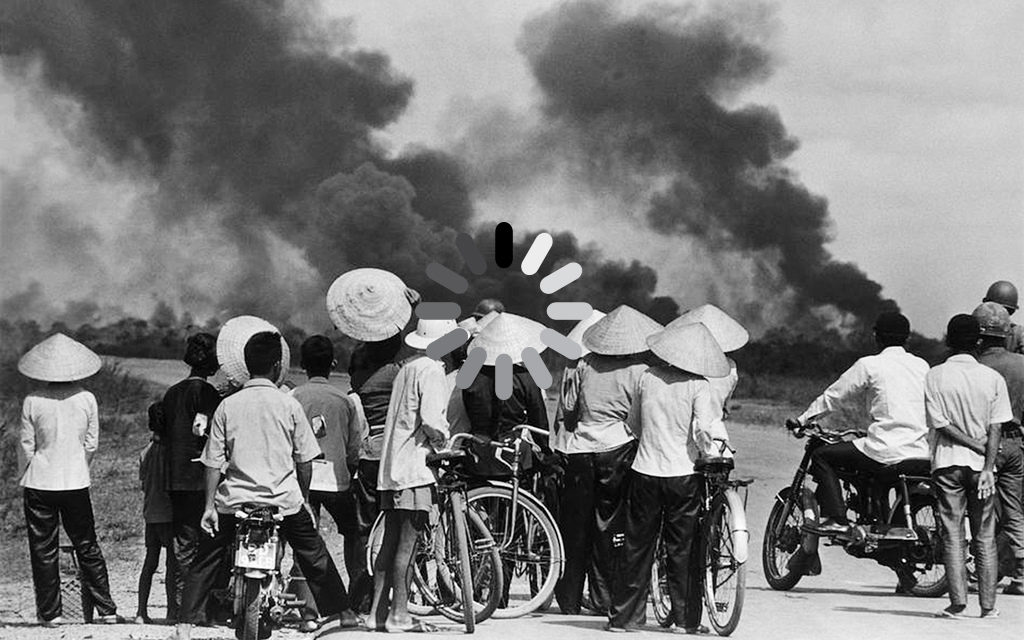


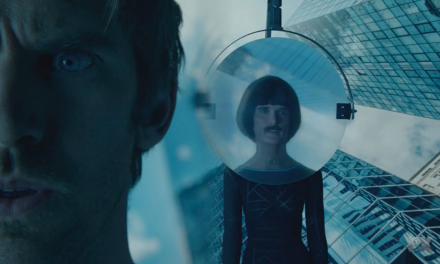
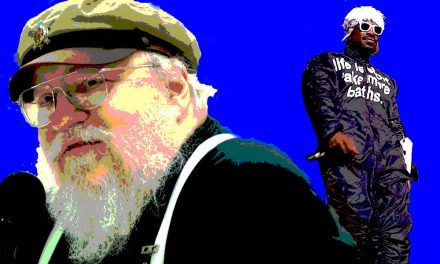
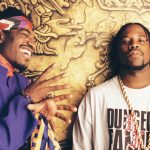



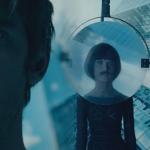
Recent Comments